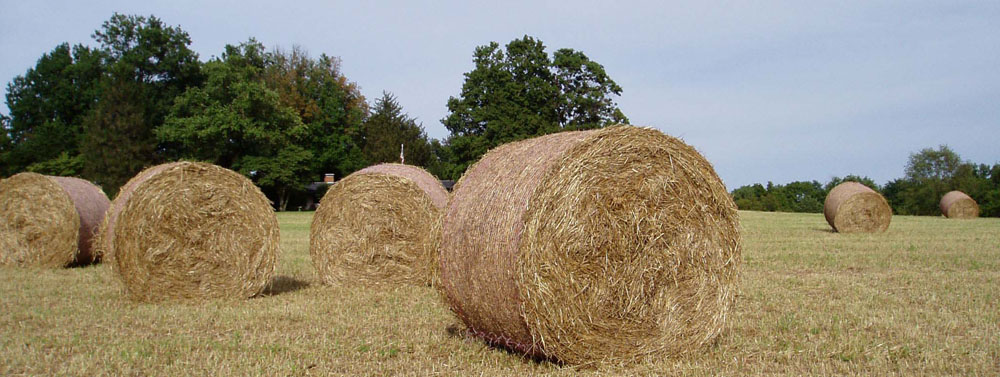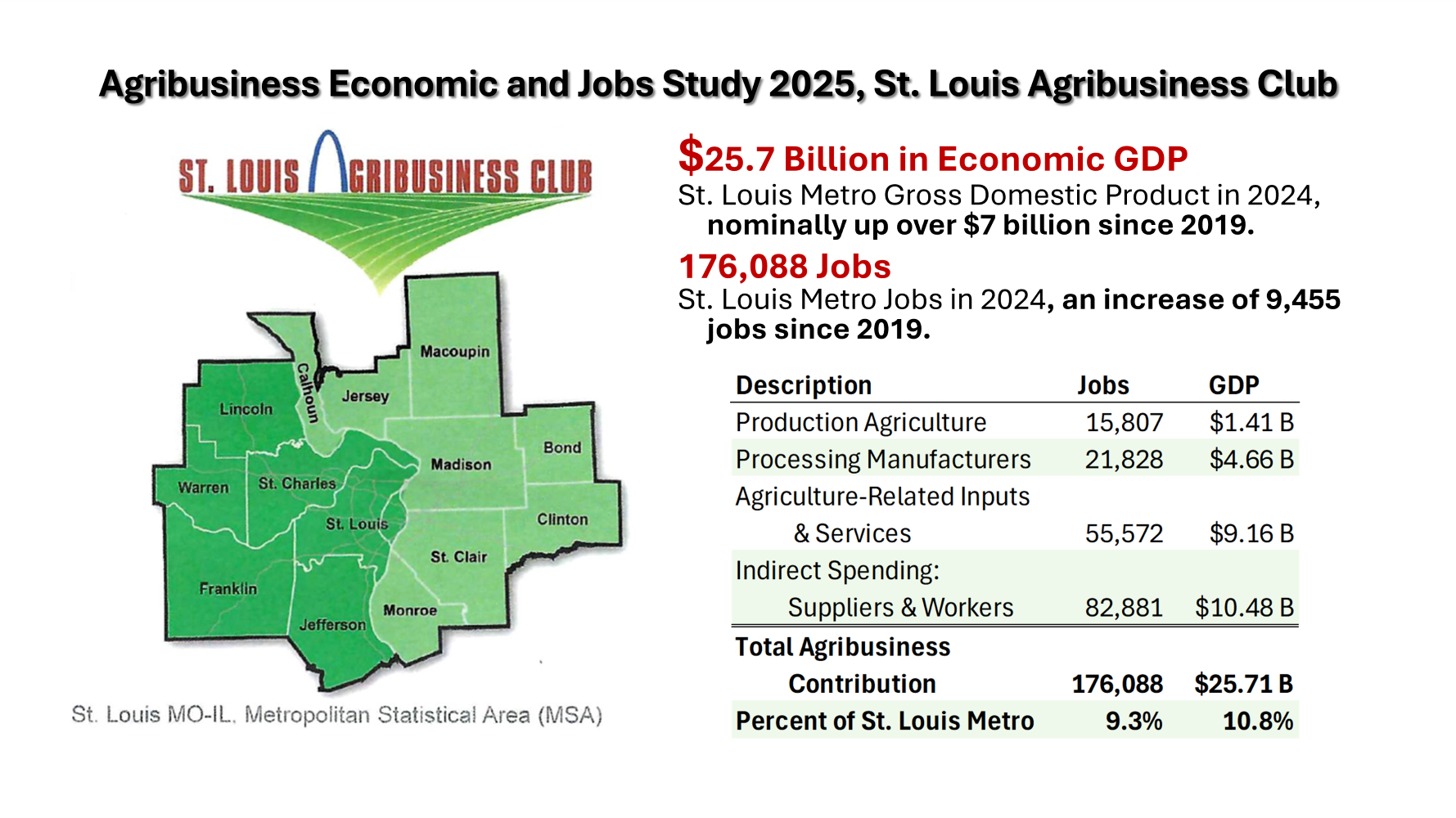Local Agribusiness Economic Study Delivered to St. Louis Agribusiness Club
Monday, September 22, 2025, the 2025 Agribusiness Economic and Jobs Study, 2025, results were presented to the St. Louis Agribusiness Club. The St. Louis Metropolitan Statistical Area (MSA) agribusiness economic impact has grown since the last study in 2019.
Based on 2024 data, the St. Louis MSA has a local agribusiness gross domestic product (GDP) of $25.7 billion dollars and a total job contribution of 176,088 job direct and indirect jobs. The direct agribusiness GDP comes from the sum of production agriculture ($1.41 billion), processing and manufacturing ($4.66 billion), and agricultural inputs and services ($9.16 billion). Agribusiness GDP from indirect goods and services accounted for an additional $10.48 billion.
The direct jobs are tabulated jobs in production agriculture (15,807), processing and manufacturing (21,828), and agricultural inputs and services (55,572). The direct jobs accounted for just over half of the total jobs. The indirect jobs (82,881) are general goods and services that require things like steel, fuel, roads, and other infrastructure that are not directly attributable to agribusiness.
Since 2019, the St. Louis MSA has added $7 billion dollars in local agribusiness-derived GDP and an additional 9,455 jobs. Great work, everybody! Out of the total economy of the St. Louis MSA agribusiness industries account for roughly 10 percent of jobs and GDP in the MSA.
The economics professor in me feels compelled to go a bit deeper. The indirect jobs and GDP estimates come from relationships established in input-output modeling. In this case from using the robust software, IMPLAN. The direct values – jobs and GDP estimates – come from historical statistics collected by the Census Bureau.
Are the indirect values really that high? Mostly. Without the estimated indirect costs, then the jobs and GDP estimates are too low. When they are included, they could be a little overestimated. We have confidence in the direct values, but that confidence is based on long established statistical methods. Because the indirect values use economic relationships from the entire US economy to estimate local values, there might be some differences in say, St. Louis, Missouri, than Los Angeles, California, or Des Moines, Iowa. The IMPLAN software does weight its estimates by county economic activity. So, we also trust the input-output methodology.
Plus, it works very well to compare the indirect values estimated for the St. Louis MSA in 2025 with those same indirect values estimated in the St. Louis MSA in 2019. The input-output values in programs like IMPLAN are best when comparing relative change, rather than absolute values.
Similar arguments can be made about the US GDP, which is final goods and services. Does it count everything accurately? Mostly, yes. They do provide an excellent framework upon which to measure economic growth. When new industries arise, there is a lag time before the data metrics for the new industry work their way through the system. But it works pretty well. New phenomena like bitcoin and the gig economy (layers of contract work), are still formative.
But the economy waits for no one. It moves and changes even when it is slowing down. We cannot wait until all the metrics are perfect.
It is also interesting to me, a resident economist of Bond County, Illinois, that we only have 16,000 residents in the county. And yet, Bond County is part of the very large, St. Louis MSA. A significant number of Bond County residents provide labor for the more urban areas of the MSA. Even though the county is very thinly populated, it makes some sense to include it in the St. Louis MSA.
The St. Louis Agribusiness Club is a tremendous resource for agribusiness in the local area. A tiny, 1-person consulting operation like Biomass Rules, can show up and speak with innovators and corporate leaders of very large agribusiness economy driving companies. And like the release of the new Agribusiness Economic and Jobs Study 2025, it is an excellent source for news of local agribusiness success. The new study is not yet posted on the St. Louis Agribusiness Club website, but will be soon. The Club website does have prior studies available.



Comments
Local Agribusiness Economic Study Delivered to St. Louis Agribusiness Club — No Comments
HTML tags allowed in your comment: <a href="" title=""> <abbr title=""> <acronym title=""> <b> <blockquote cite=""> <cite> <code> <del datetime=""> <em> <i> <q cite=""> <s> <strike> <strong>